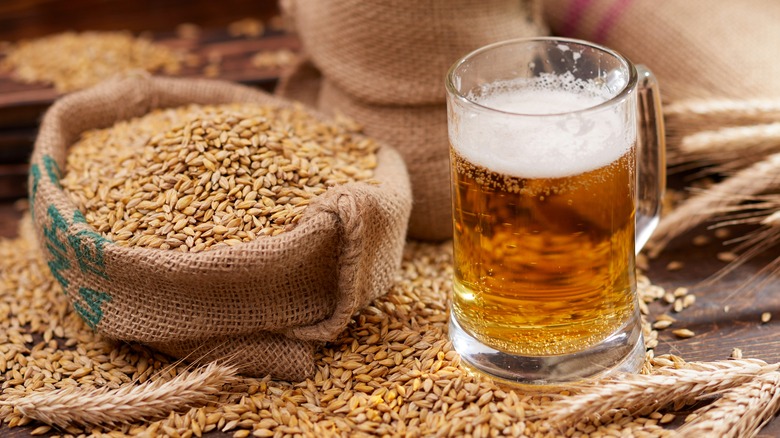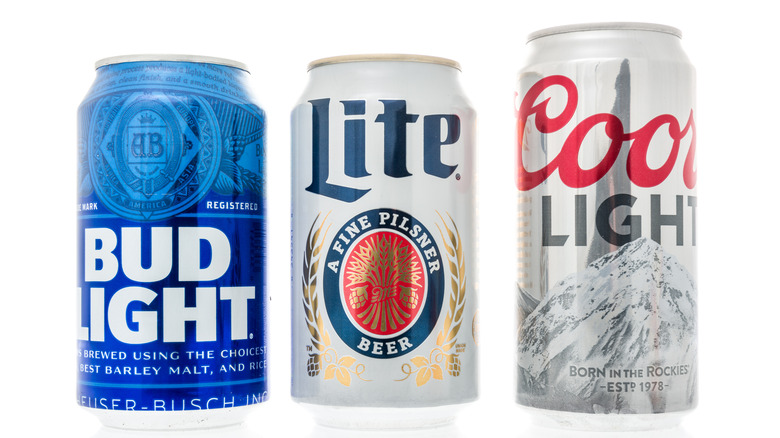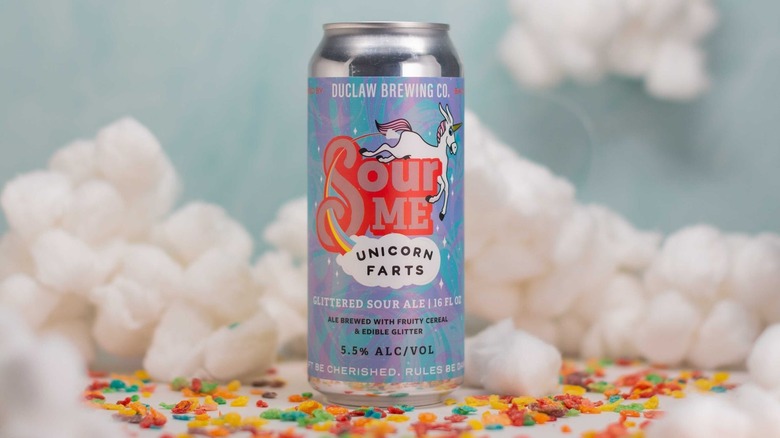Why Some Beers Are Brewed With Adjuncts
Why are some beers brewed with adjuncts? That question may get the vague answer: "It depends." It will also get you a history lesson and some beer geekery. To understand why some beers contain adjuncts, it's essential to know what adjuncts are and why they matter. The Long Beach Post seems to put their definition at best: "Anything that isn't part of the Reinheitsgebot that gets put into a beer."
The BBC explains that the Reinheitsgebot, known as the German Purity Law, was decreed by the Duke of Bavaria in 1516, allowing beer to only be made from three ingredients: barley, hops, and water. Yeast was added to the list later when it was discovered how vital it could be in fermentation. The purpose of the Reinheitsgebot was threefold: to regulate beer prices, to limit the use of wheat in beer brewing to ensure enough wheat was available for baking bread, and to prohibit the use of unsafe ingredients, according to the BBC.
That definition from Long Beach Post doesn't sound scary, assuming modern brewers aren't trying to poison their patrons with toxic ingredients. Given that the Reinheitsgebot only ever applied in Germany, what's the big deal about adjuncts anyway? Are beers that contain adjuncts of lower quality?
Light lagers use adjuncts to create a dry and mellow brew
The production of beer relies on fermentation, or the process of yeast converting sugar into alcohol. Beer and Brewing uses a more narrow definition that explains why brewers might use an adjunct, defining it as a "non-malt source of fermentable sugars."
Might you remember those "corngate" ads between Bud Light and Miller Lite (via Inside Beer)? Beer Connoisseur explains the kerfuffle was all about the use of adjuncts. Bud Light (really, its parent behemoth of a company, AB InBev) ran an ad that rightfully stated that corn syrup is used in brewing Miller Lite. Miller Lite took offense, in part because they didn't want their beer to be associated with high fructose corn syrup, a product with a less-than-stellar press.
Beer Connoisseur points out that using rice — another adjunct — in the brewing process, as Bud Light does, is really no different than Miller Lite using corn syrup. They're both perfectly appropriate ingredients for achieving the clear, clean flavor desirable in the American Light Lager beer style.
Winning Homebrew points out that this style is actually more challenging to brew than most beer drinkers realize. And the addition of adjuncts is what "separates the light lagers" from other brews, making them drier and lighter.
Adjuncts add nuanced flavors and change the texture and color of beer
Many brewers use adjuncts for extra flavor, to create a distinctive texture, or to alter the color of their beer. The Spruce Eats points out that at this point, the sky's the limit when it comes to adjuncts, even for collectible beers with a cult-like following.
Modern brewers use coffee, tea, chocolate, nuts, fruits, vegetables, spices, and even oysters to make their beers distinctive. Adjuncts like lactose, which VinePair explains is a "non-fermentable sugar used in milk stouts and milkshake IPAs," have become commonplace in American breweries. Firestone Walker Brewing states that they're added to create a richer texture, allowing for "sweetness and a thicker mouthfeel."
And adjuncts can get even more anomalous than milk sugar — Baltimore, Maryland-based DuClaw Brewing makes a beer called Sour Me Unicorn Farts, a sour ale flavored with fruity cereal, tangerines, limes, and cherries and finished with sparkly edible glitter.
Clearly, not all adjuncts are created equal; they're part of the marvelously inventive landscape of mass-produced and craft beer.


